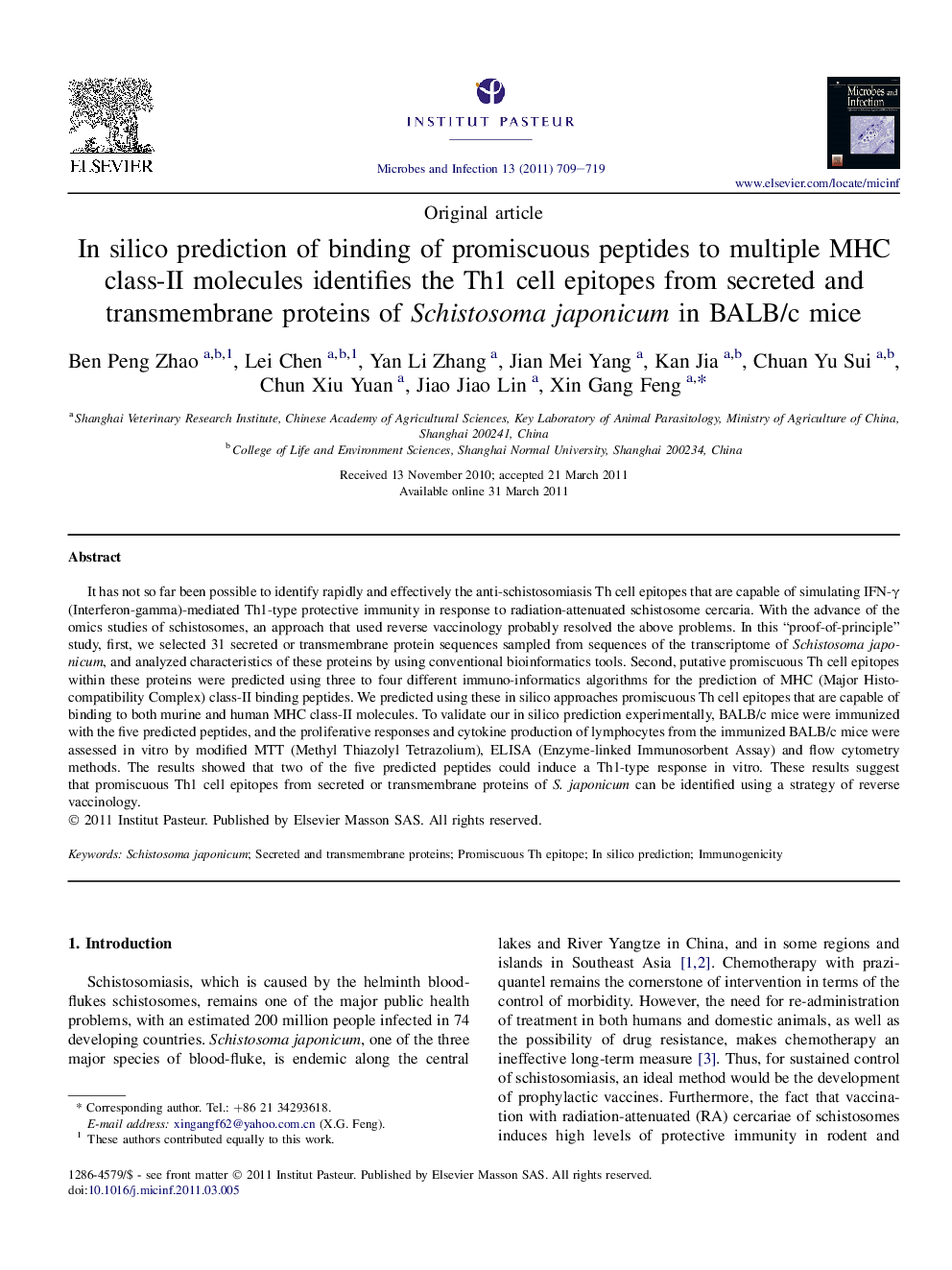| کد مقاله | کد نشریه | سال انتشار | مقاله انگلیسی | نسخه تمام متن |
|---|---|---|---|---|
| 3414886 | 1224917 | 2011 | 11 صفحه PDF | دانلود رایگان |

It has not so far been possible to identify rapidly and effectively the anti-schistosomiasis Th cell epitopes that are capable of simulating IFN-γ (Interferon-gamma)-mediated Th1-type protective immunity in response to radiation-attenuated schistosome cercaria. With the advance of the omics studies of schistosomes, an approach that used reverse vaccinology probably resolved the above problems. In this “proof-of-principle” study, first, we selected 31 secreted or transmembrane protein sequences sampled from sequences of the transcriptome of Schistosoma japonicum, and analyzed characteristics of these proteins by using conventional bioinformatics tools. Second, putative promiscuous Th cell epitopes within these proteins were predicted using three to four different immuno-informatics algorithms for the prediction of MHC (Major Histocompatibility Complex) class-II binding peptides. We predicted using these in silico approaches promiscuous Th cell epitopes that are capable of binding to both murine and human MHC class-II molecules. To validate our in silico prediction experimentally, BALB/c mice were immunized with the five predicted peptides, and the proliferative responses and cytokine production of lymphocytes from the immunized BALB/c mice were assessed in vitro by modified MTT (Methyl Thiazolyl Tetrazolium), ELISA (Enzyme-linked Immunosorbent Assay) and flow cytometry methods. The results showed that two of the five predicted peptides could induce a Th1-type response in vitro. These results suggest that promiscuous Th1 cell epitopes from secreted or transmembrane proteins of S. japonicum can be identified using a strategy of reverse vaccinology.
Journal: Microbes and Infection - Volume 13, Issue 7, July 2011, Pages 709–719